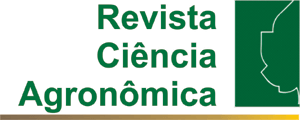ABSTRACT
The intensive cultivation of melon, mainly in the Northeast of Brazil, has favored the occurrence of root diseases such as rhizoctonia, caused by the fungus Rhizoctonia solani Kuhn. The use of resistant cultivars is one of the most efficient strategic measures for integrated management of diseases in this crop. It is necessary to use an efficient inoculation method to evaluate rhizoctonia in melon germplasm with the aim of identifying sources of resistance. The objective of this study was to develop an efficient method to inoculate the pathogen to proceed in selection of R. solani resistant melon germplasm. Five experiments were conducted under greenhouse conditions to define the adequate container, growth environment, substrate for inoculum production, aggressiveness of the isolates, inoculum density, manner of inoculation, phenological stage of the plant, and time for evaluation after inoculation. The results obtained showed that for selection of R. solani resistant melon germplasm, the use of seedlings with roots cut during transplanting to pots is recommended. The pots should contain sand with organic inoculum obtained from rice grains at the concentration of 150 mg.kg-1 of soil, associated with inoculation through a puncture in the plant stem by an infested toothpick, without the need for a moist chamber. The most aggressive isolate was CMM-1068.
Key words:
Cucumis melo; Rhizoctonia solani; Genetic resistance; Damping off

 Thumbnail
Thumbnail
 Thumbnail
Thumbnail

